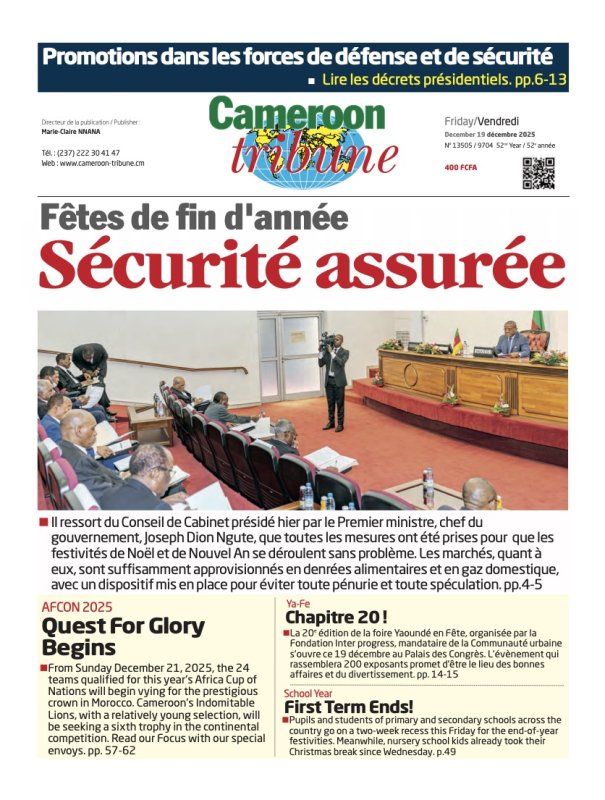One of the pillars of an economy is the currency. It must have a central authority for its control and emission. As a constant in the equation of the fiscal industry, the money used must never suffer any doubt about its source. Yet, this has been the case since 2009 with the farfetched invention of a parallel virtual fiduciary depending solely on computing, internet and calculating skills.
Now, as a control mechanism, the bell has been rung to awaken consciences against the looming danger of the new form of tender that may flaw the finances of Central African States. It is the Cryptocurrency or crypto money. Abbas Mahamat Tolli, Statutory President of COBAC and Governor of BEAC, after their May 6, 2022, extraordinary sitting by Visio conference, issued an interdict via a press statement over the use of virtual coinage.
The COBAC (French acronym Commission Bancaire de l’Afrique Centrale) or the Central African Banking Commission is the gendarme for monetary transactions (including ownership, transfer, saving and withdrawal) in the entire central African region constituting of six countries. The COBAC is the body or commission that deliberates on the management of BEAC, which is the central bank for six central African countries glued to the CFA franc namely Cameroon, Central African Republic, Chad, Republic of Congo, Gabon and Equatorial Guinea.
The communique, made public the same day after COBAC’s 1 hour 15 minutes’ conference, sounds a reminder to financial actors and commercial banks of the central African community over what might have been already known as the risks and peril involved in crypto virtual money transactions. Dealings in the realm of virtual money are not officially and legally accountable. While the matter continues to feed debates, to flow ink and saliva, the position of the COBAC members remains clear as to guarantee the financial stability and to preserve members’ financial deposits or funds with banks affiliated to BEAC, the bank of central African States.
This renewed stance by COBAC, which is the money engine of central African States so forbids all such cryptocurrencies. Experts hold that crypto-mongering is more or less a game of chance and people should not blindly embrace it to turn round and cry foul when it backfires. Insistently, financial authorities of CEMAC draw public attention to the fact that the crypto remains an illegal and highly risky venture unacceptable in financial cooperation among central African States.
Last April 27, utterances emanating from a State within CEMAC hoisted intentions in the direction of legalising the use and banking of crypto money. Certainly, this contributed to trigger the May 6, outing of COBAC to clarify opinion against the bait. In so doing, COBAC insists that only the FCFA remains the recognized legal tender, the only currency permitted for financial reporting, accountability and accountancy in the central African monetary union.
But what is cryptocurrency? It is simply defined as “any form of currency that exists digitally or virtually and uses cryptography to secure its transactions”. Monetary experts go further to explain that cryptocurrencies do not have a central issuing or regulating authority. Instead, they use a decentralized system to record transactions and issue new units. Its name derives from uses of encryption to verify transactions. This means that advanced coding is involved to store and transmit money data between wallets and public data.
The earliest crypto money, the bitcoin, from an eastern hemisphere inventor-name “Satoshi Nakamoto” was founded in 2009 and its key interest was to generate profit in currency trade. Speculators of such currency drive prices pretty skyward. Examples of the invisible crypto money include the 2009 “bitcoin”, the 2012 “ripple”, and the 2015 “ethereum”. In all cases, experts warn against the volatile nature of the crypto venture. Unlike government-backed money, the value of virtual currencies is driven entirely by supply and demand. This can swing important gains as well as big losses for investors. So, why base your business and wealth on chance instead of legality?
The temptation nowadays is for people, especially young scintillating brains, to shun hard work and bend on computers and android phones to scam for money. Proceeds from such ven...
Cet article complet est réservé aux abonnés
Déjà abonné ? Identifiez-vous >
Accédez en illimité à Cameroon Tribune Digital à partir de 26250 FCFA
Je M'abonne1 minute suffit pour vous abonner à Cameroon Tribune Digital !
- Votre numéro spécial cameroon-tribune en version numérique
- Des encarts
- Des appels d'offres exclusives
- D'avant-première (accès 24h avant la publication)
- Des éditions consultables sur tous supports (smartphone, tablettes, PC)











Commentaires